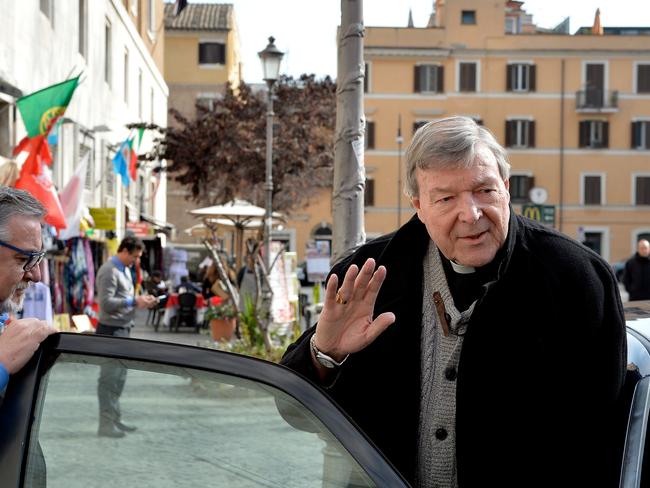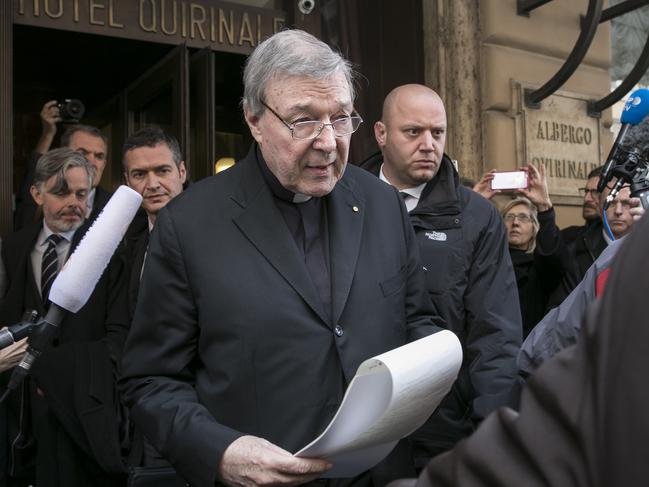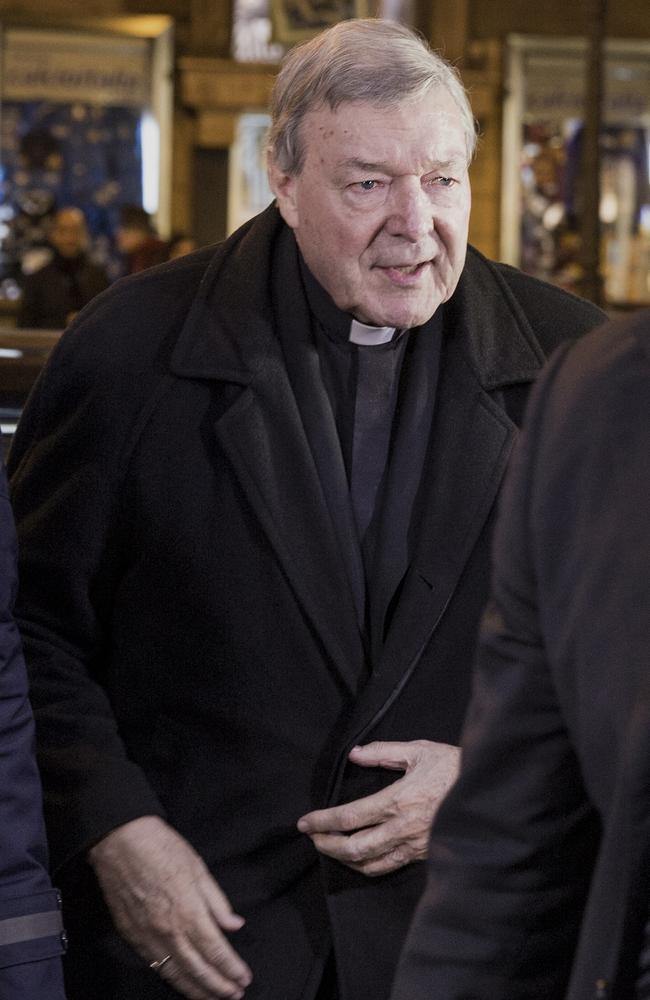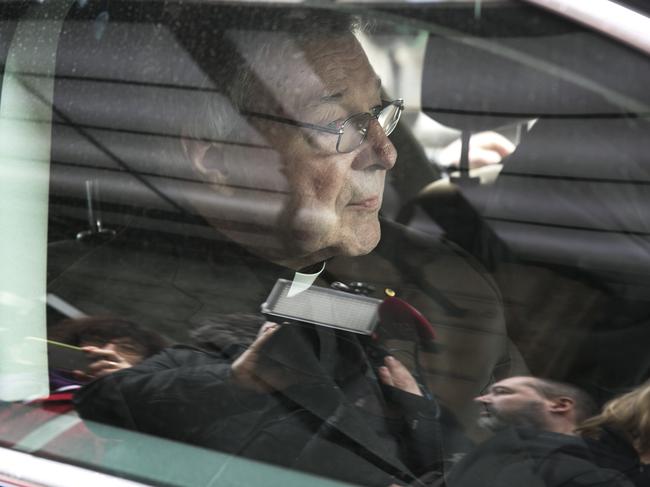George Pell in his own words at the royal commission
From a makeshift witness box in a packed Hotel Quirinale functions room in central Rome, George Pell sat resolute and firm as he stared down his accusers.
True Crime
Don't miss out on the headlines from True Crime. Followed categories will be added to My News.
From a makeshift witness box in a packed Hotel Quirinale functions room in central Rome, George Pell sat resolute and firm in his belief as he stared down his accusers.
Children, he declared with a level of old-fashioned pomposity, were simply not to be believed.
That was the position of the Catholic Church in Australia in the not too distant past he contended as he sought to explain away how it was the shameful abuse of children had apparently been dismissed by clergy for so long.
Never in the more than 1000 year annals of the papacy had the faith been questioned in such a bizarre manner — a modern recreation of a Roman Forum if you like where one of the Vatican’s top men was sat in a court-like configured room of a hotel in the Italian capital, under lights, late at night before a capacity audience of 168 and a camera live stream to the other side of the world in Australia.
LATEST UPDATES: Victims rage at guilty George Pell
VERDICT: George Pell found guilty of sex offences against two boys
COMMENT: How Pell’s attitude spurred on his critics
SECRET SOCIETY: Scandal is no stranger to the Vatican
ROYAL COMMISSION: What Pell said during Rome testimony
REDRESS SCHEME: Sex abuse victims ‘on hold’ for compo

The $400 million royal commission into institutional child abuse had sat in Australia for weeks from 2013 but was shifted to Rome for a week in 2016 to take testimony from one of the biggest figures in the Vatican to ever be questioned in such a way and Pell as a star witness did not disappoint.
There was never a suggestion at that time that Pell himself had abused children but just that he saw, heard or spoke no evil that was going on about him during the 1970s to the 1990s.
But his legalese parlay with counsel assisting the inquiry Gail Furness SC and Commissioner Justice Peter McClelland for those hours on a cold weekend in February 2016 were stunning and for most of those in the packed room that were not wearing a clerical collar, there was little doubt what it all meant.
Pell was not a man to be believed.
The extraordinary hearings were a brief public insight into the then 74-year-old and for him an even briefer introduction to court proceedings that he would face proper more than two years later.

Victorian police attached to Operation Tethering had planned to arrest Pell after he was to give evidence to the commission in Melbourne in November 2015, but after citing ill health he instead was allowed to give evidence via video link from the Verdi Room in the Quirinale in Rome in February 2016.
Pell’s lawyers earlier this year described the police plans as a “get Pell operation”.
But there was no move made after his time in the witness box in Rome, perhaps because he and the case against him were considered too far away.
Certainly on the basis of his performance in the witness box the only thing he was clearly guilty of was frustrating proceedings with long winded and at times obfuscating evidence largely about what he didn’t know rather than what he did.
He was in the stand from 10pm to 2am local time each night, to coincide with the commission sitting during daylight hours in Australia to answer questions related to his time in Ballarat.
Pell said what priests spoke about between themselves was not what was discussed in broader circles and there was a saying in the Church “that those who know don’t say and those that say don’t know”.

It set up his consistent argument that he knew nothing of the abuse going on about him by priests either under his control or friendship.
The distinction that appeared to set clergy men apart prompted Ms Furness to ask: “Are priests human?”
“I hope so,” Pell responded. He went on: “Human beings in different categories have very different approaches to these matters. We work within a framework of Christian moral teaching … or certainly we should, and discussion of the secret faults of others is not encouraged.”
He conceded enormous mistakes had been made, the church had “scandalously” dismissed complaints of abuse and mucked things up but “original sin” in the priesthood was real.
“Unfortunately original sin is alive and well; the tendency to evil in the Catholic Church too and sometimes it’s better sometimes it’s worse but for good or for ill the church follows the patterns of the societies in which it lives,” he said.

Little consolation to the 25 victims of church abuse and their partners who sat in the first five rows of the hearing, some whose heads hung low and others sobbed openly as details of those sins were detailed by the commission.
His consistent claims he knew nothing including allegations of abuse by notorious Fr Gerald Ridsdale as he moved about five to six parishes was branded “implausible” during at times combative and hostile exchanges between Pell and counsel.
At one point, Justice McClelland warned Pell he could be found culpable if the inquiry did find out he knew of the predator in his midst.
The noose about his neck was set however when he would later tell the forum that when he indeed heard about the abuse: “It was a sad story and it wasn’t of much interest to me”.
Now presumably such sad stories are.


